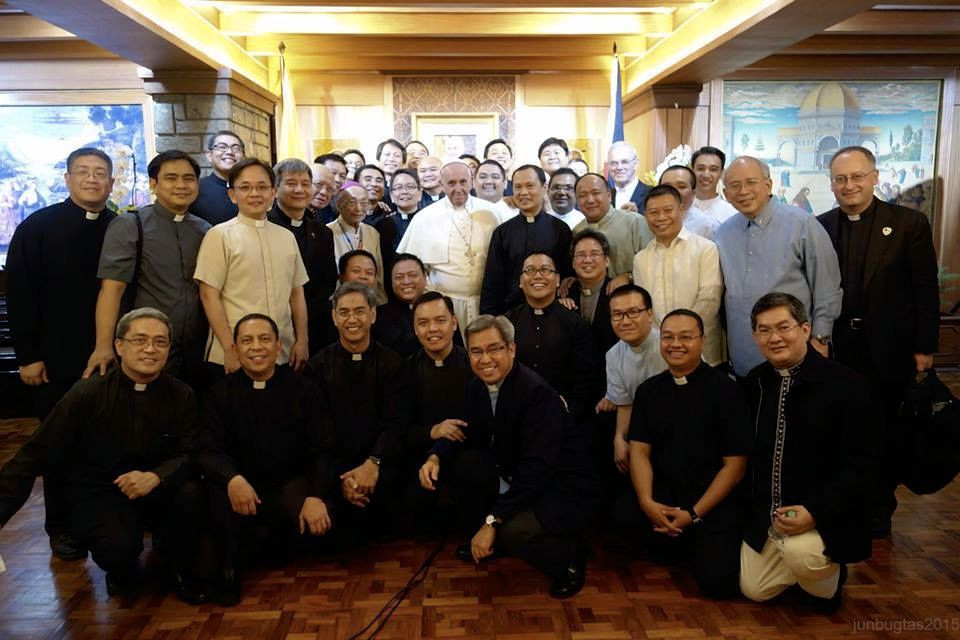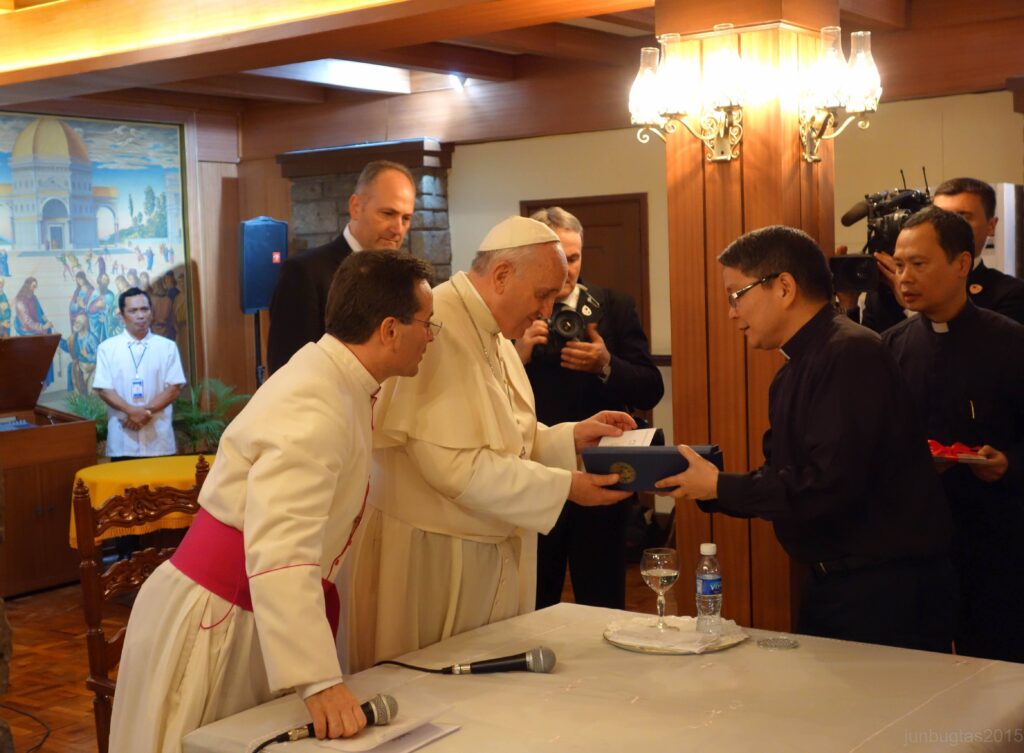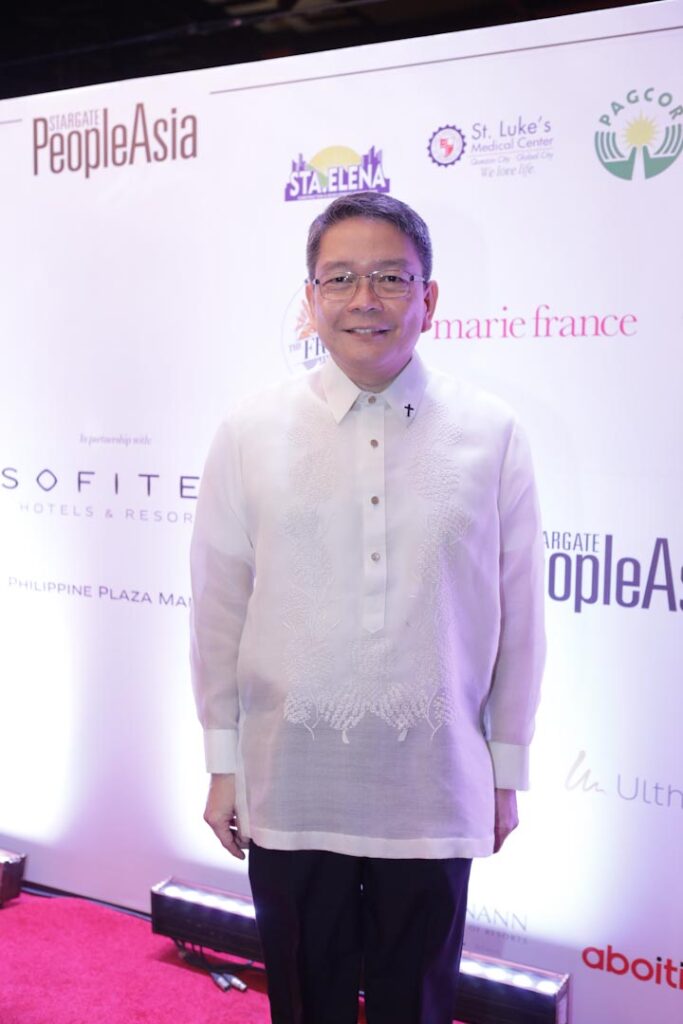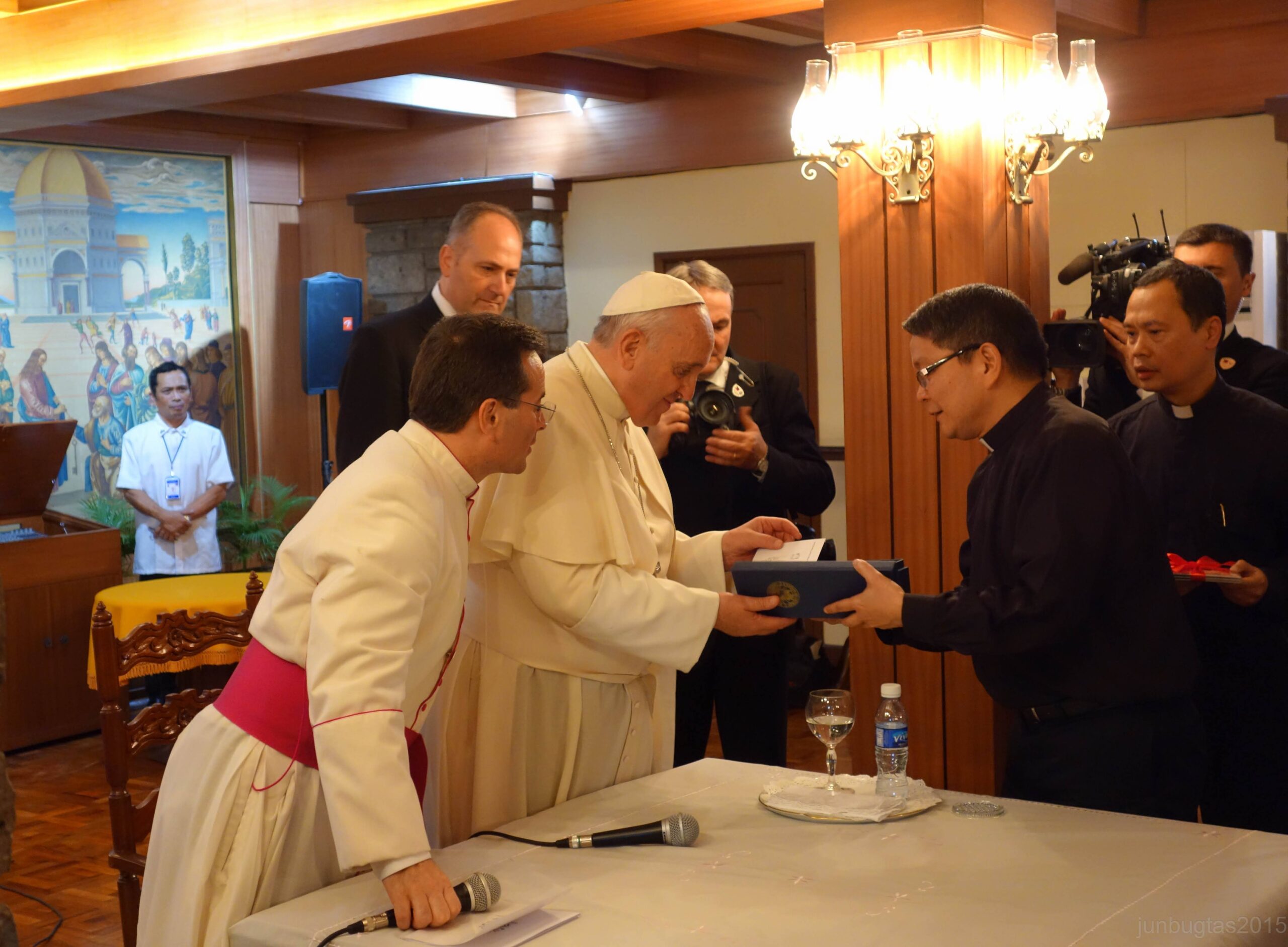Proving that a Jesuit remains a Jesuit to the end, Pope Francis’ coat of arms prominently features the seal of the Society of Jesus. In an exclusive interview with PeopleAsia, former Ateneo de Manila University president, physicist and People of the Year 2018 awardee Fr. Jose Ramon “Jett” Villarin SJ, talks about his encounter with Pope Francis during his Papal Visit to the country in 2015, and how the Pope’s Jesuit identity greatly defined his papacy.
By ANNE STEPHANIE NILO
A Jesuit who stayed true to his vow of poverty, gave without counting the cost, and — like an obedient soldier — followed St. Ignatius of Loyola’s order to “go, set the world on fire” by going down to the grassroots and listening to the needs of his flock, Pope Francis, indeed, made his order proud.
“As a Jesuit, he was always looking to the frontier concerns of our time. Pope Francis always trained his sights outward, toward the edges of society — las periferias (the peripheries) as he would name it. He was always seeking where God may be found laboring in the world,” says former Ateneo de Manila University president and current Jesuit Residence rector Fr. Jett Villarin, who, in January 2015, led a group of 40 Filipino Jesuits who visited Pope Francis in the Apostolic Nunciature in Manila during his first and only Papal Visit to the country.

A contemplative in action
But what exactly characterizes the core of a Jesuit, and how did the late Pope Francis embody it?
Founded in 1540 by Basque soldier Ignatius of Loyola, the Society of Jesus, aka the Jesuits or the Compañía de Jesús, is a religious order known for its missionary zeal, and emphasis on discipline and obedience. Its members undergo a notoriously long and rigorous 13- to 15-year formation period, and are steeped in both scholarship and practical knowledge to hopefully equip them to fully engage the world.
And Jesuit spirituality — from being “contemplatives in action,” to “finding God in all things” especially among the poor — inspired the young Jorge Bergoglio to join the Society of Jesus in November 1957. As a Jesuit priest who later on moved up the church hierarchy to become provincial, cardinal, bishop and archbishop of Buenos Aires, Father Bergoglio was a true shepherd who lived among his flock, frequently visiting the Argentine capital’s slums and riding public buses, his ministry animated by the image of the church not so much as a body of rigid doctrine that kept people out, but more as a field hospital where wounded people may come in.
He was guided by the same zeal and sense of purpose when he ascended the throne of St. Peter in 2013. Mercy and compassion for “the last, the least and the lost” drove Pope Francis to bring the church to the farthest peripheries, and like a true Jesuit, was guided not only by the Holy Spirit, but by the most pressing realities of our time such as climate change and social inequality.
This, for Fr. Jett, is the most powerful and enduring legacy that sets this Jesuit Pope apart from his predecessors.
“Many resonated with this powerful image. In his writing and preaching, notably in Laudato Si, he kept reminding us about the poor and creation, so easily discarded in a world enamored with wealth and power. He dearly wanted us to recognize the face of Christ in those hurting at the margins, the least in our lives who are mostly invisible to us,” Fr. Jett explains.

Jesuits and their jokes
The late Pope’s sense of humor only made him more human, more approachable. When Pope Francis visited the Philippines in 2015, Fr. Jett saw in him not the Pope, but a fellow Jesuit who was capable of having a good laugh with his brothers. And as Pope Francis wrote in a New York Times essay, “jokes about and told by Jesuits are in a class of their own.”
The Pope broke the gravitas that came with the papacy and the formality of the occasion with a joke. He said in jest that the 40 elephants who had welcomed him to Sri Lanka looked better than the 40 Filipino Jesuits who visited the Apostolic Nunciature.
Fr. Jett recalls that “it was a simple and intimate gathering of brothers. No frills. Honest. No ranks or titles to separate us. With a touch of humor even. When we came dressed in all sorts of attire — some formal, some informal — and presented ourselves, Francis’ first reaction was to tell us that the elephants in Sri Lanka had better costumes!”

Consolation and fullness
Beyond humor, there was overwhelming consolation — St. Ignatius’ term for moments of interior joy and serenity that spring from an intimate communion with God. Or in the case of the 40 Jesuits, including Fr. Jett, when they met the Pope, who was “human and real,” making it easier to forge a fraternal bond with his fellow Jesuits.
“When we walked along Taft Avenue that evening after we met with him, we were in ‘consolation,’ to use a technical word in Ignatius Loyola’s Spiritual Exercises. While we waited for him, we were offered cookies only, no supper. He arrived late because he had just come from MOA (SM Mall of Asia) in a gathering with families. Truth is, we were not hungry. Not really, before the meeting and even after. We were all full from the encounter. Busog!”
This spiritual fullness that goes beyond the gut, Fr. Jett believes, emanated from his encounter with the Jesuit Pope who said that it was only through mercy that he was called to the priesthood and the papacy.
“Sa totoo lang (truth be told), for all the titles and accolades, it is our humanity that keeps us from being proud. It is also our humanity that brings God close to us. Miserando atque eligendo (having mercy [on Matthew, the tax collector], He [God] chose him). That is Francis’ motto for his papacy. That for me sums up the grace of this man who has inspired me and countless others to be brave enough again to make an oblation of our lives,” Fr. Jett concludes.





